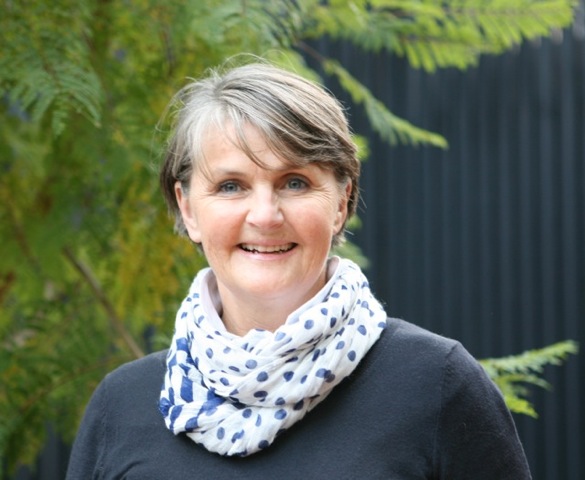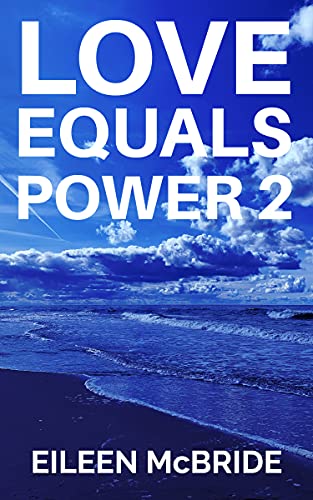I was recently asked this and I would suggest that we don’t really “find” happiness, rather we create it. Further, it is created on many different levels.
Firstly, it helps us to understand that everything we experience is relative. How we feel about a certain experience or set of circumstances depends on our expectations based on past experience. If we have no expectations (which, in itself, is a major category in the self-help genre) we are more likely to be happy with our present situation. Our feelings of satisfaction, gratification, and contentment are wound up in the concepts of contrast and comparison. Our happiness and pleasure in doing something completely opposite to our custom and habit is far greater than if we have been having the same experience for prolonged periods.
As an example, my experience of living Wellington, New Zealand was the opposite of that of most of my Australian friends, who all found Wellington too cold. They came from cities in Australia that were all at least 10-15 degrees celsius (20-30 degrees fahrenheit) warmer all year round. They spent a lot of time complaining about the cold and they allowed the weather to contribute greatly to their unhappiness and dissatisfaction with the beautiful New Zealand capital. In contrast, I loved Wellington. Unlike my friends, I did not move directly from Australia. I had been living in Cleveland, Ohio where winter is extreme. In Wellington I never progressed from my spring coat; my winter coat, squall cap, and snow boots stayed in storage. Same conditions, completely different experience of happiness.
What this does point to is the importance of balance in our perceived sense of happiness. Everything feels better, tastes better, and more likely to bring greater happiness when we give equal time and attention to contrasts and opposites. Sleep feels so much better and more refreshing when we have exercised, junk food tastes so much better after a habit of healthy food, partying and vacationing are so much more enjoyable after periods of intense work, and social time is more fun when dotted amongst periods of solitude. Addiction, a lack of discipline, laziness, and ennui all contribute to the diminution of our feelings of happiness and well-being, indicating that happiness actually requires strength, intention, purpose and dedication.
Happiness is a mindset, not an objective state of being. No matter how many of the customary indices of happiness - money, success, beauty, health - define our experience and circumstances, they alone will not, and cannot, create the sense of well being we normally associate with happiness. The fundamental determinants of our peace, joy and well-being are contained in how free from fear we are, and how much love we feel - for ourselves, others, and the world.
We can wake up in a luxurious bed in a beautiful house, with a handsome and successful mate by our side, get up and put on our size zero designer outfits and drive our recent model car to our fabulous job, and still feel that happiness eludes us. Our fears and anxieties will always trump peace and contentment, so no matter how much we try to change the external conditions of our lives in the hope that the new and improved circumstance will finally be the trigger for our permanent happiness, we will only feel happy when we can control our thoughts (and also our words and actions) to those that lead to peace, harmony and love. Self-hatred, judgment - of self and others, fear of others’ opinions about us, and all the many and varied existential anxieties around health and money that seem to plague most of us most of the time, are actually the true determinants of our happiness, or lack thereof. Truly, nothing else matters in the happiness stakes.
The three main aspects of life that are seen as both the main sources for happiness whilst also being the cause for the greatest despair and sorrow are money, beauty and success. We all assume that if we had all these we could finally be happy. This attitude is so entrenched in our beliefs about life and happiness that they merit separate treatment:
Money We are almost universally of the belief that the lack of money is the source of the vast majority of our worries and woes. If only we had more money, we could finally be happy. The path to the realization of the utter falsity of this notion is complex and long. Money is where our primal fear of survival meets our tendencies to self-hatred and personal insecurity, creating a toxic mix of fear and anxiety that is difficult to untangle. Basically, the possession of certain amounts of money cannot create happiness, and its absence is not the true source of despair. Our happiness turns solely on the level of fear we feel.
I remember a family member took me to task when I said that I was totally happy with my financial situation and had no worries around money. “That’s because you have plenty of money!” was his scathing reproach. But he completely missed the point. I have always felt this way, even when I had a whole lot less. My father was a cleaning contractor who despite his lack of education and formal skills that excluded him from the conventionally high paying professions, nevertheless was able to send four children to what was at the time one of the most expensive private schools in our state. I remember one time my parents only had $24 in the bank and the term’s school fees of more than a thousand dollars were due. My father called the school, who assured him not to worry, and he didn’t. He remained calm, he knew something would work out. A couple of days later a lady he had done some work for (he was always generous with his time) decided she wanted to pay him for it. The check covered the fees.
I was lucky to have a father who trained me not to have fear around money, because it is fear that leads us to waste, misuse, and disrespect both our own and other people’s money, and it is these behaviors that lead to lack.
No matter how much money that might pass through our hands, we will not feel happy until we engage in the thoughts, words and actions of love, peace and joy. This is why wealthy people are not free of fear or worry. I have a friend who has millions of dollars in assets and, in the decade and a half that we have been friends, has never once bought me a coffee (let alone lunch or dinner). I assume my friend worries about losing the money he has. No amount of money will allay the fear of lack and potential loss I suspect lies at the root of his feelings around money.
Beauty Physical beauty is a particular issue for women because society teaches girls from early on that what she looks like, and how attractive others find her, determines much of her value and worth as a woman and even as a human being. In recent years this seems to becoming more of an issue for men too. The desire for beauty is natural. Beauty and symmetry is at the basis of all physical life, and the laws that govern it. However whilst we fail to deal with the fears and self-loathing that lie beneath our feelings of unattractiveness, our efforts to enhance our beauty by artificial and superficial means are doomed to fail. That is why we in the west actually believe that breasts, brows, and lips that are filled with plastic and chemicals are more beautiful than their natural counterparts. We hate ourselves so much, and we need other’s approval so much, that we believe the false, fake, dead (unalive) and toxic are comely and desirable alternatives to our natural state. Whilst we believe this, we will NEVER be happy.
Most of us operate on the principle of more is better thus it is assumed that extreme beauty would lead to extreme happiness. It does not take much research to establish that this is not true, otherwise models would be the most enduringly happy people on earth. Not only is this not so, in fact a case for the opposite can be made. Tara Moss is an extremely beautiful woman who was a model and is now an author. In her memoir The Fictional Woman she recounts the sexual assaults she has experienced, in addition to the almost daily harassment she endures because men feel entitled to have a piece of her and her beauty. I’m not saying that extreme beauty is not desirable, just that extreme beauty on its own is not synonymous with happiness.
Success My husband ticked every box that we normally associate with success, and thus, happiness. He was extremely good looking (potentially model material), highly intelligent (recipient of a scholarship to Cambridge University in England) and athletic (captain of the Cambridge University water polo team). He was placed on the management fast track at the international corporation where he worked and was sent on international postings to do interesting and stimulating jobs, facilitating a rapid rise in the ranks of power and success.
But was he happy? In the two decades I lived with him I don’t think he ever experienced more than fleeting feelings of happiness, and then only rarely. He was so ridden with anxiety and self-doubt, and so in need of the approval of others, that his life became one desperate search for external validation, wherever, and from whoever, he could get it. He was both unwilling and unable, to face his fears directly and they grew and intensified unabated, eventually coming to dominate his life. He could never enjoy his successes (and they were many) because fear and anxiety colored and distorted every achievement, poisoning every moment of potential joy and celebration. His life became a continual drive for the next hit that would temporarily numb his pain so that after decades of negative thoughts and behaviors, he became a sad and diminished man, able only to chase deluded fantasies and pipe dreams, with no way of enjoying and appreciating what was on paper an interesting and successful with all the elements we associate with happiness. He was a classic example of one who mistakes the temporary silencing and numbing of pain with happiness and totally unable to perceive the real source of joy.
Happiness is created with every thought, word and action we choose because it is both the energy and effect of these that determine not just our experience but how we perceive and respond to that experience. What we really mean by “happiness” is the state of being when we feel no fear. However, in that blessed moment we find that we no longer think about happiness, because in that moment of true fearlessness we experience pure joy, a state of being that far surpasses mere happiness.

